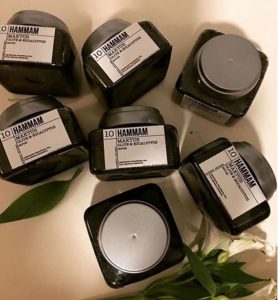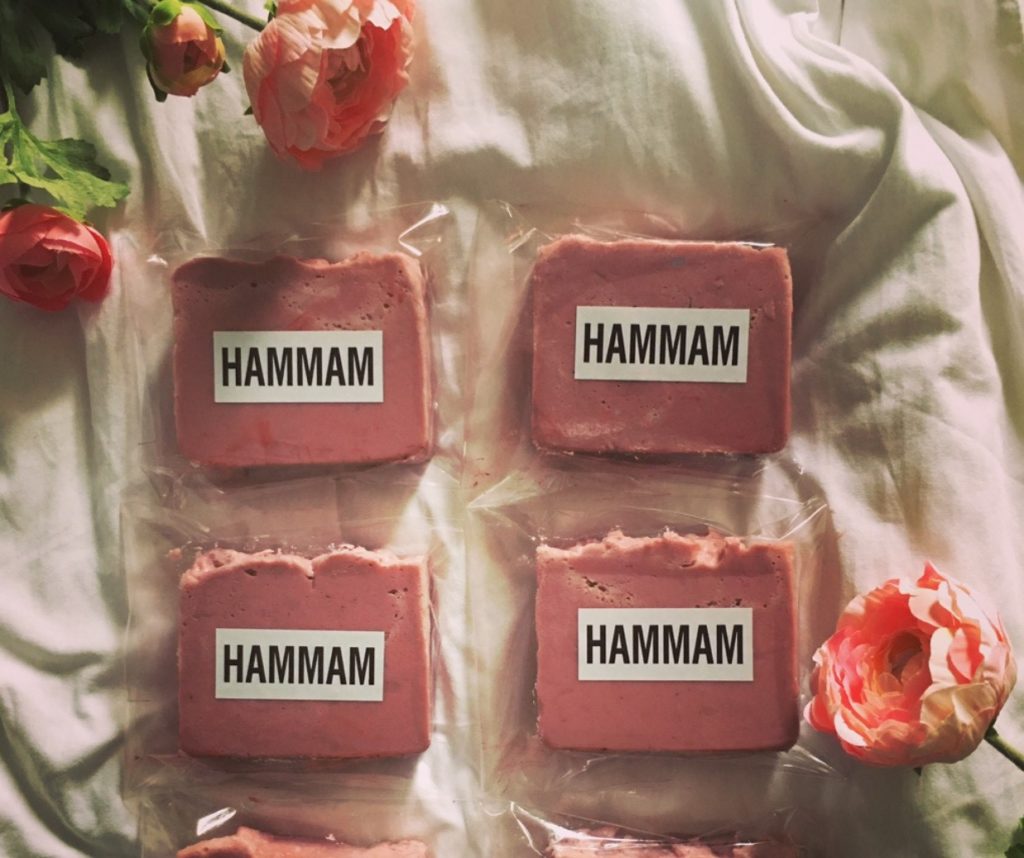SSão Paulo – The Brazilian businesswoman Claudia Mendes, of Santos, São Paulo, travelled on tourism to Marrakech, Morocco in 2018, while living in Lisbon, Portugal. Taken with the trip and with Morocco’s traditional bathhouses, she envisioned the opportunity to start a new business. Back in Brazil, she established Hammam Soap to sell artisanal soap, hydrating and exfoliating products with aromas including rosemary, lavender and bergamot.
Arab bathhouses offer warm baths with lots of steam. In Marrakech, they use a blackish brown soap made from eucalyptus and olive oil, Mendes said. “The hammam are usually next to the mosques, and they are considered sacred. Bathing is regarded as a cleansing process before prayer, and as a place for fraternizing as well,” she told ANBA. When she went to a bathhouse, she got an exfoliation with soap. “An employee will apply the soap foam and then exfoliate you with a kessa glove that’s similar to sponge gourd.”

Hence the brand’s name and the desire to make soap and to work with aromas. “I created the black Maktub product as an olive oil- and salt-based exfoliant. The name is a tip of the hat to to Arab culture and tradition,” Mendes said regarding one of the first products in her line. Maktub is Arabic for “destiny” or “it was written.”
Next came the lavender- and rosemary-based lines, which are the brand’s flagship products, as well as the bergamot one. Also available from Hammam Soap are other aromas, including aloe vera and coconut (pictured above), and cedar- and fig-based lines that are due out this year.
The soaps are handcrafted and some of the lines are vegan. Instead of using palm oil, Mendes uses almond oil, coconut oil, grapeseed oil, and shea butter. She doesn’t saponification; instead, she’ll buy plant- or animal-based fat, and she argues that her soaps are rich in glycerin, which she claims is really important in ensuring soap bar quality. “Bar soap is better than the liquid kind, because in bars you get the oils, and in the liquid you don’t.”
The soaps are handcrafted and some of the lines are vegan. Instead of using palm oil, Mendes uses almond oil, coconut oil, grapeseed oil, and shea butter. She doesn’t saponification; instead, she’ll buy plant- or animal-based fat, and she argues that her soaps are rich in glycerin, which she claims is really important in ensuring soap bar quality. “Bar soap is better than the liquid kind, because in bars you get the oils, and in the liquid you don’t.”
Claudia Mendes started making her product in July 2019, in Santos, on the São Paulo coast, after attending a soapmaking workshop and putting together a business plan. “About twenty years ago I used to make soap and sell it. When I went to Morocco, I got the urge to do it again. I wanted to go back to doing something I really like. It wasn’t a business trip, but it ended up taking me in that direction,” said Mendes, who holds a degree in Interior Design and once owned a clothing store.

Morocco was the first Arab country Mendes has ever been to. She said she’s taken Arabic lessons, and that she’d like to go to Marrakech again, and to see other Arab countries, such as Lebanon.
For the time being, Hammam Soap sells only through Instagram, and out of a dermatology clinic in Guarujá, São Paulo. Mendes says sales are booming along the São Paulo coast, in the capital, and the countryside. She delivers to anywhere in Brazil, and she has expansion plans in place for next year. “I want to keep doing things artisanally, while evolving with my products, of course. I want to hire people, but in order to do that I need to increase my sales.”
The soap bars go for BRL 17 to BRL 23. Exfoliants are BRL 53 each, and a 250 ml jar of hydrating product costs BRL 44 – the same price as liquid soap. Other items are available, including room sprays and diffusers.
The brand’s design and packaging is influenced by Nordic minimalism, according to Mendes, merely for aesthetic reasons. “That’s what luxury means for me. It’s about simple things, and I have created a brand that looks like me. Although there may be similar products on the market, none is exactly like it.”
Translated by Gabriel Pomerancblum




